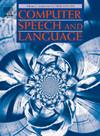ECDG-DST:基于高效语境和领域引导的对话状态跟踪模型,适用于智能对话系统
IF 3.4
3区 计算机科学
Q2 COMPUTER SCIENCE, ARTIFICIAL INTELLIGENCE
引用次数: 0
摘要
对话状态跟踪(DST)是智能对话系统的重要组成部分,其目标是预测对话转折处的当前对话状态。然而,以往的大多数研究都存在对话多次转折时存储大量数据和存储大量噪声信息的问题。此外,他们还忽视了领域对对话状态跟踪任务的影响。在本文中,我们为智能对话系统提出了 ECDG-DST 1(基于高效语境和领域引导的对话状态跟踪模型),该模型保留了关键信息,但保留了较少的对话历史,并在对话状态跟踪中有效地屏蔽了领域。我们的模型利用高效对话上下文、之前的对话状态以及域和槽之间的关系来缩小需要更新的槽的范围,同时限制值的方向,以减少无关词的产生。ECDG-DST 模型由四个主要部分组成,包括编码器、域向导、操作预测器和值生成器。我们在三个流行的面向任务的对话数据集 Wizard-of-Oz2.0、MultiWOZ2.0 和 MultiWOZ2.1 上进行了实验,实证结果表明,与基线相比,ECDG-DST 在 Wizard-of-Oz2.0 上的联合目标准确率分别提高了 0.45%,在 MultiWOZ2.0 上提高了 2.44%,在 MultiWOZ2.1 上提高了 2.05%。此外,我们还通过实验分析了高效上下文的范围,并通过消融研究验证了我们提出的领域引导机制的有效性。本文章由计算机程序翻译,如有差异,请以英文原文为准。
ECDG-DST: A dialogue state tracking model based on efficient context and domain guidance for smart dialogue systems
Dialogue state tracking (DST) is an important component of smart dialogue systems, with the goal of predicting the current dialogue state at conversation turn. However, most of the previous works had problems with storing a large amount of data and storing a large amount of noisy information when the conversation takes many turns. In addition, they also overlooked the effect of the domain in the task of dialogue state tracking. In this paper, we propose ECDG-DST 1 (A dialogue state tracking model based on efficient context and domain guidance) for smart dialogue systems, which preserves key information but retains less dialogue history, and masks the domain effectively in dialogue state tracking. Our model utilizes the efficient conversation context, the previous conversation state and the relationship between domains and slots to narrow the range of slots to be updated, and also limit the directions of values to reduce the generation of irrelevant words. The ECDG-DST model consists of four main components, including an encoder, a domain guide, an operation predictor, and a value generator. We conducted experiments on three popular task-oriented dialogue datasets, Wizard-of-Oz2.0, MultiWOZ2.0, and MultiWOZ2.1, and the empirical results demonstrate that ECDG-DST respectively improved joint goal accuracy by 0.45 % on Wizard-of-Oz2.0, 2.44 % on MultiWOZ2.0 and 2.05 % on MultiWOZ2.1 compared to the baselines. In addition, we analyzed the scope of the efficient context through experiments and validate the effectiveness of our proposed domain guide mechanism through ablation study.
求助全文
通过发布文献求助,成功后即可免费获取论文全文。
去求助
来源期刊

Computer Speech and Language
工程技术-计算机:人工智能
CiteScore
11.30
自引率
4.70%
发文量
80
审稿时长
22.9 weeks
期刊介绍:
Computer Speech & Language publishes reports of original research related to the recognition, understanding, production, coding and mining of speech and language.
The speech and language sciences have a long history, but it is only relatively recently that large-scale implementation of and experimentation with complex models of speech and language processing has become feasible. Such research is often carried out somewhat separately by practitioners of artificial intelligence, computer science, electronic engineering, information retrieval, linguistics, phonetics, or psychology.
 求助内容:
求助内容: 应助结果提醒方式:
应助结果提醒方式:


